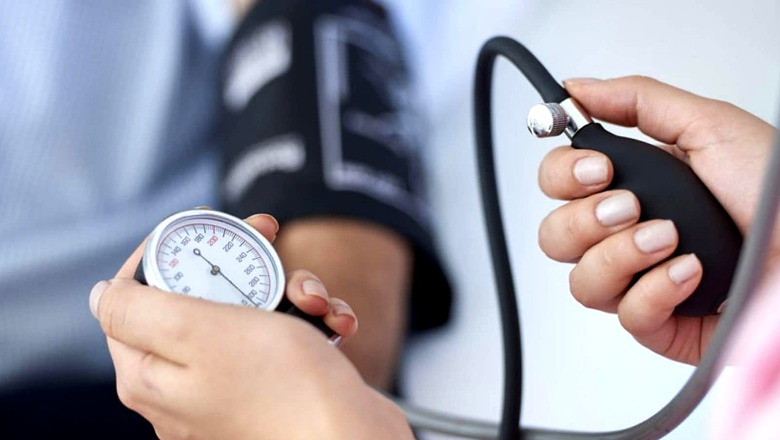
views
Doctors at a Delhi government-run hospital have conducted a study to examine the epidemiological characteristics of the pandemic by describing clinical profiles of COVID-19 patients, and found that hypertension was the most common co-morbidity among them. The outbreak of the pandemic in Delhi was first reported in March 2020.
A total of 3,534 patients were enrolled in this study done by doctors at the 650-bed Rajiv Gandhi Super Speciality Hospital (RGSSH), aged 9-96 years. Among patients with symptoms, fever and cough were the most common presenting symptoms, while 5.6 per cent of the patients were asymptomatic, as per the study published in the Journal of Family Medicine and Primary Care in May. The exercise was undertaken to “study the epidemiological characteristics of the pandemic by describing the clinical profile of the COVID-19 patients” presenting to the super specialty hospital, a doctor who was part of the study said.
“COVID-19 is quite different from SARS because of its high infectivity. There are still many uncertainties, which prevail about the epidemic. In summary, this pandemic has been a major test for the medical community worldwide and has provided indeed many valuable experiences regarding the existing health infrastructure in the country and the policies that need to be drafted with precision and futuristic vision,” the researchers wrote in the conclusion of the study.
“It has revealed weakness in the management of emerging viral diseases and reminded us that communicable diseases must never be underestimated. Adoption of aggressive measures as well as their wide implementation may help to control the epidemic. Moreover, we also need to build sufficient resources, organise human as well as material resources, and share and analyse the data in a timely manner to implement control activities,” it said.
This was a descriptive study using medical records of patients who tested positive for SARS-CoV-2 RNA using reverse transcription-polymerase chain reaction (RT-PCR) between March 17, 2020 and January 15, 2021 while maintaining confidentiality, he said. “The clinical and demographic data of all the patients were entered in a Microsoft Excel and statistical analysis was done using SPSS 21 software. Regression analysis was performed and a P value less than 0.05 was considered to be statistically significant,” according to the study.
Among the outcomes, the study found that “hypertension was the most common co-morbidity (37 per cent), while no co-morbidities were present in 43 per cent of the participants and this was statistically significant for age (P = 0.000)”. “Among patient outcomes, more than 50 per cent of patients were in home isolation, while 11 per cent of patients had a fatal outcome. Elder age group had a higher proportion of expiry among outcomes (P <= 0.001). Most patients had a hospital stay of 911 days,” as per the study.
A total of 63 healthworkers were included, with a male-female ratio being 3.5:1, it added. “Our study reflects that majority of the positive cases that presented to the hospital had mild/moderate symptoms. We believe that appropriate triaging of patients followed by early institution of medicine and good critical care services may help to control this epidemic,” the study says in its conclusion.
RGSSH was designated as a COVID-19 centre in March 2020 to provide comprehensive services, i.e., counselling, triage, treatment, discharge, and follow-up to the patients from Delhi and adjoining areas. The hospital provided services to all such patients irrespective of the disease severity and no selection was done at any level. The present study is a cross-sectional analysis of hospital to elaborate on the profile of COVID-19. The study included all the patients who presented to the study hospital and were tested positive for SARS-CoV-2 as well as referred COVID-19 patients from other hospitals. The objectives of the study was to study the epidemiological characteristics of the pandemic by analysing the case detection trends, mortality curve, as well as cumulative admissions and cumulative deaths, and to describe the clinical profile of the COVID-19 patients presenting to the hospital, it said.
The information and details of all the individuals testing positive for SARS-CoV-2 by RT-PCR from nasopharyngeal swab sample who were tested in the hospital or were referred to the hospital. “We restricted the data collection date to January 15, 2021 because COVID-19 vaccination was rolled out in India on January 16, 2021. The data were retrieved from the electronic medical record (EMR) section of the hospital after due approval from the Institutional Ethics Committee of the hospital,” the study said.
Read all the Latest India News here




















Comments
0 comment